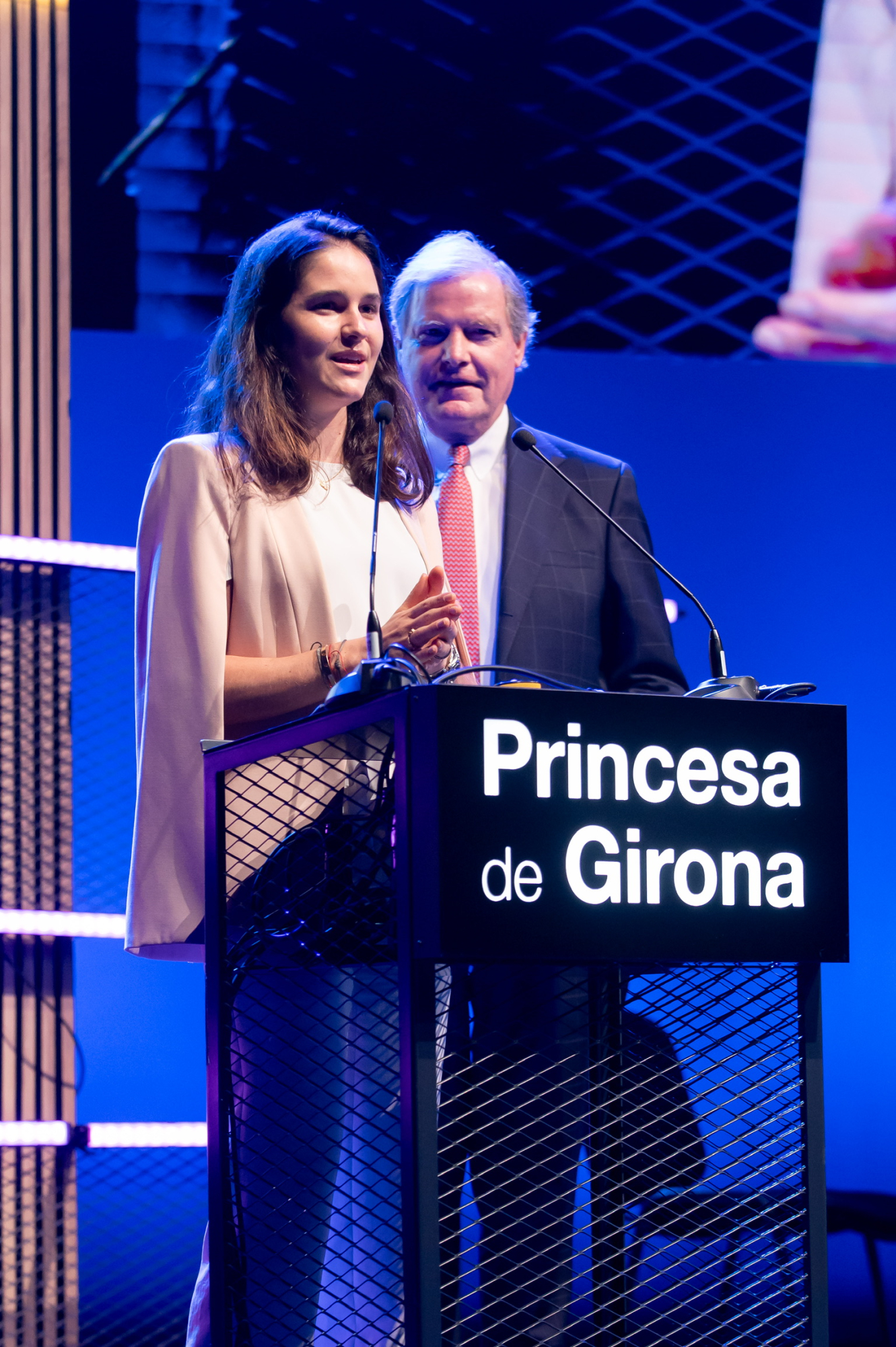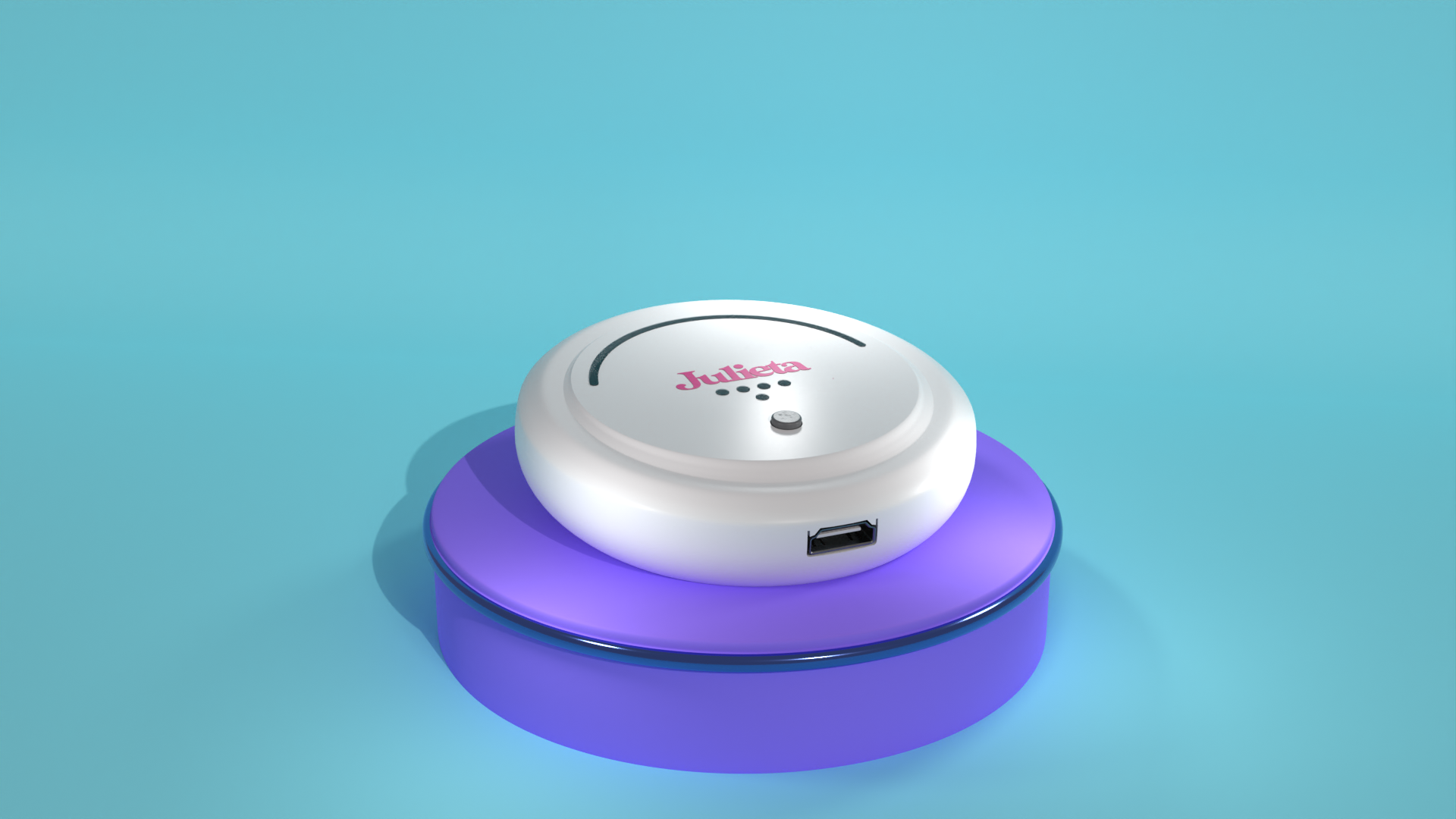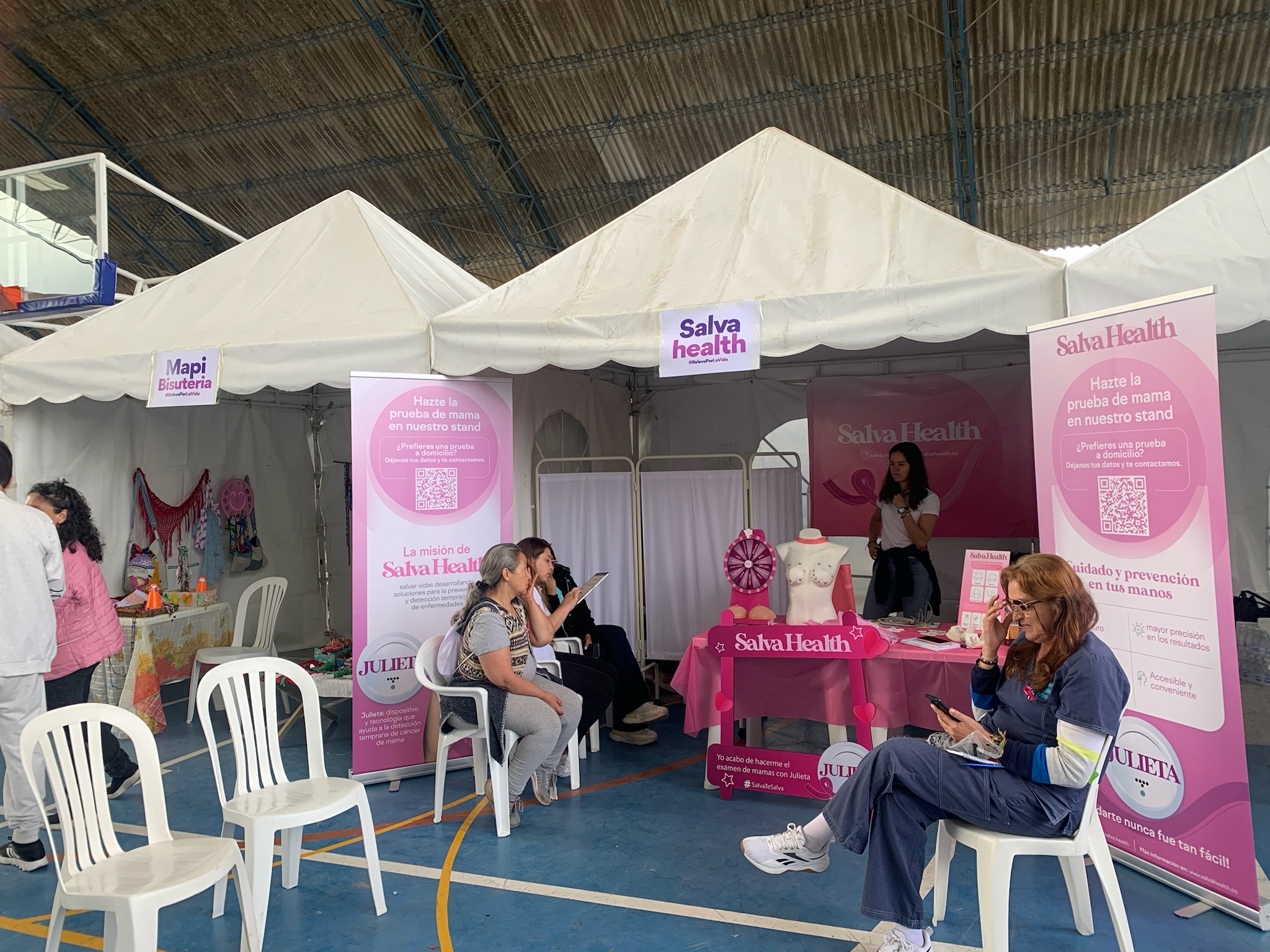'Julieta,' the Colombian device that uses AI to detect breast cancer risk, wins an award in Spain.

The Princess of Girona Foundation International Award seeks to recognize the The award recognizes young people up to the age of 35 from Latin American countries who have distinguished themselves through their work and merits in the fields of entrepreneurship, business, and scientific research in an extraordinary and exemplary manner. Among this year's winners, announced this week at an event presided over by King Felipe VI , is a Colombian: Valentina Agudelo, founder and CEO of the technology startup Salva Health .
Agudelo was recognized in the 'CreaEmpresa' category for her entrepreneurial venture, which included developing 'Julieta,' a portable device that uses artificial intelligence tools to identify and classify breast tissue as healthy or unhealthy .
The Princess of Girona Foundation praised the Colombian's work in leading an innovative technological solution that addresses one of the most pressing challenges in Latin America: limited access to health services in vulnerable communities . "Through a wearable device powered by artificial intelligence, Valentina has demonstrated that when women cannot access medical testing, testing can—and should—reach them. Her venture, Salva Health , is an initiative that integrates social purpose, business viability, and high potential for expansion, with the real capacity to transform lives in contexts where the health system falls short," the Spanish organization stated.
In an interview with EL TIEMPO, Agudelo spoke about the importance of this recognition, which places her on the European stage, the challenges of undertaking a business in a field such as technological solutions in health, as well as the progress they have made with 'Julieta', a device that has already screened more than 2,800 women in Colombia, giving them the opportunity to identify abnormalities in a timely manner, allowing them to access early medical care.
How did this interest in entrepreneurship arise? I have a degree in business administration from CESA, an MBA from INSEAD (France), and I come from a family of entrepreneurs. In fact, my father and my grandparents are all entrepreneurs. I think it was literally in my blood. Ever since I was little, I wanted to start small businesses; I've always liked it. But I've also always had that connection with social issues. I think that's been a latent part of my life: wanting to generate value but somehow making it converge with business. I was always convinced that social entrepreneurship was possible, that one could first think about problems and solutions and then turn them into sustainable and profitable business models, and that was partly my approach.
At that moment, what we understood was that breast cancer was no longer a truly medical issue. Doctors know how to treat cancer; they know how to cure it if we give them the right amount of time to do so.

Valentina Agudelo. Photo: Salva Health
While at CESA, at an entrepreneurship fair, Cristina García and another friend had the opportunity to do a university project, which was theoretical, and for that, we designed an idea for how we could detect breast cancer early. That idea arose from the breast cancer of one of our friends, which at the time was a very close case. We were also exploring projects by women for women, understanding issues of sexuality, menopause, menstruation—something like taboos in the field of women's health—and we stumbled upon this topic of cancer and arrived at breast cancer. At that moment, what we understood was that breast cancer is no longer really a medical issue. Doctors know how to treat cancer, they know how to cure it if we give them the right amount of time to do so. When the problem is really one of time, it's because of the lack of access to diagnostic tests that we are increasingly seeing late detection, and that's what lowers the survival rate. We designed a conceptual tool to detect breast cancer early.
How do you turn that theoretical idea into a real device? After the fair, I became obsessed with the topic and began developing it with a team of experts. We created strategic alliances with Sura, for example, to conduct research ; we partnered with an engineering group (which is currently our internal team) to develop the device. Today, what we've created is a device called 'Julieta,' which identifies breast abnormalities to prioritize those women who may be at risk for cancer and provide them with timely diagnosis and treatment. This is what's disruptive about 'Julieta,' that we don't actually diagnose cancer, but rather perform early screening to identify breast abnormalities. In this process, which lasted six years of development and research, we identified things we had already learned. We learned how to make medical devices, we learned about electrical conductivity, and at some point, we decided to add an additional umbrella to 'Julieta,' called Salva Health. Our company seeks to save lives through early disease detection and has the potential to create other devices.
How does it work? The woman can go to her health center or the pharmacy closest to her home. There she can pay for the screening out of pocket or, if we have a sponsor, access it for free. In any case, the idea is to make it affordable for the patient. There, the device is placed, which basically has 12 wires, six for each breast, with electrodes. It's connected to our main device and via Bluetooth to an app. And through the app, we begin sending commands. Once the device is placed on the breasts, we verify that the action is correct, then we perform the measurement and interpretation. All in less than five minutes, and we deliver the results in real time. While the woman finishes getting ready, we tell her if there are any irregularities or relevant features and whether or not she should be prioritized for a complementary secondary exam.
How many women have accessed this service?What we designed is a device that is portable, non-invasive, radiation-free, painless, and that allows us to offer screening with artificial intelligence so as not to require specialized personnel.
We've screened more than 2,800 women across the country. We've been to more than 15 health centers. We've begun to form strategic alliances with other organizations, such as the League Against Cancer, for example, and with some compensation funds, to begin expanding the program beyond research.

'Julieta' allows for breast cancer risk screening in five minutes. Photo: Salva Health
What makes Julieta special is that from its conception, it was focused on the underserved population, living in extremely rural conditions. We wanted it to be able to truly reach anywhere. What we designed is a device that is portable, noninvasive, radiation-free, and painless. It allows us to offer screening, also using artificial intelligence so specialized personnel are not required . It takes less than five minutes. It has a host of features to be able to perform screening anywhere.
Do you already have health registration? We obtained it at the end of last year. In fact, it was one of our most important milestones, almost completing that research phase and allowing us to begin this distribution phase.
How difficult has it been to start a business in this technology and healthcare sector? If one analyzes the evolution of industries and technological developments, the healthcare industry is one of the least developed. This is due, first, to its highly monopolized nature; second, to its very costly nature without the right partners; and third, to its very long development periods. It's very difficult for a startup to withstand the five years of research we achieved. Achieving the level of robustness in research we had requires precisely these strategic partners. Furthermore, it's an extremely regulated sector, which adds a greater degree of complexity compared to other industries. It also demands a very high level of quality and accreditation, because we're talking about saving lives, and that implies enormous responsibility in the development and quality of the product.
What does receiving the Princess of Girona Award in Spain mean to Valentina and Salva Health? The winners were announced this week, and we will receive the award on July 23rd in Barcelona. The announcement was presided over by the King of Spain, and it was a beautiful moment, because they are recognizing our work and the value of 'Julieta' in transforming lives and democratizing access to healthcare. For us, this will be a very important milestone when we look back in a few months or years. We know this moment is pivotal: it gives us recognition, credibility, and opens many doors for us in Europe, which always represents a difficult barrier to cross for those of us from Latin America.

Salva Health Brigades. Photo: Salva Health
At 'Julieta,' that cross-cutting line of research and device improvement will undoubtedly always be present. We will always want it to be more precise, to deliver better results, but for 'Julieta,' expansion is underway, not only in Colombia but also in other countries in the region. By leveraging Invima (National Institute of Medical Devices), we can expedite regulatory approval across the region, so we will be very focused on that. At Salva, we also want to explore other products for prostate cancer, osteoporosis, fatty liver disease, and other diseases with a high incidence that are truly highly sensitive if detected early. Our value proposition is that: to help detect diseases that are very common in the population early on, and lives can be saved if detected early.
eltiempo




